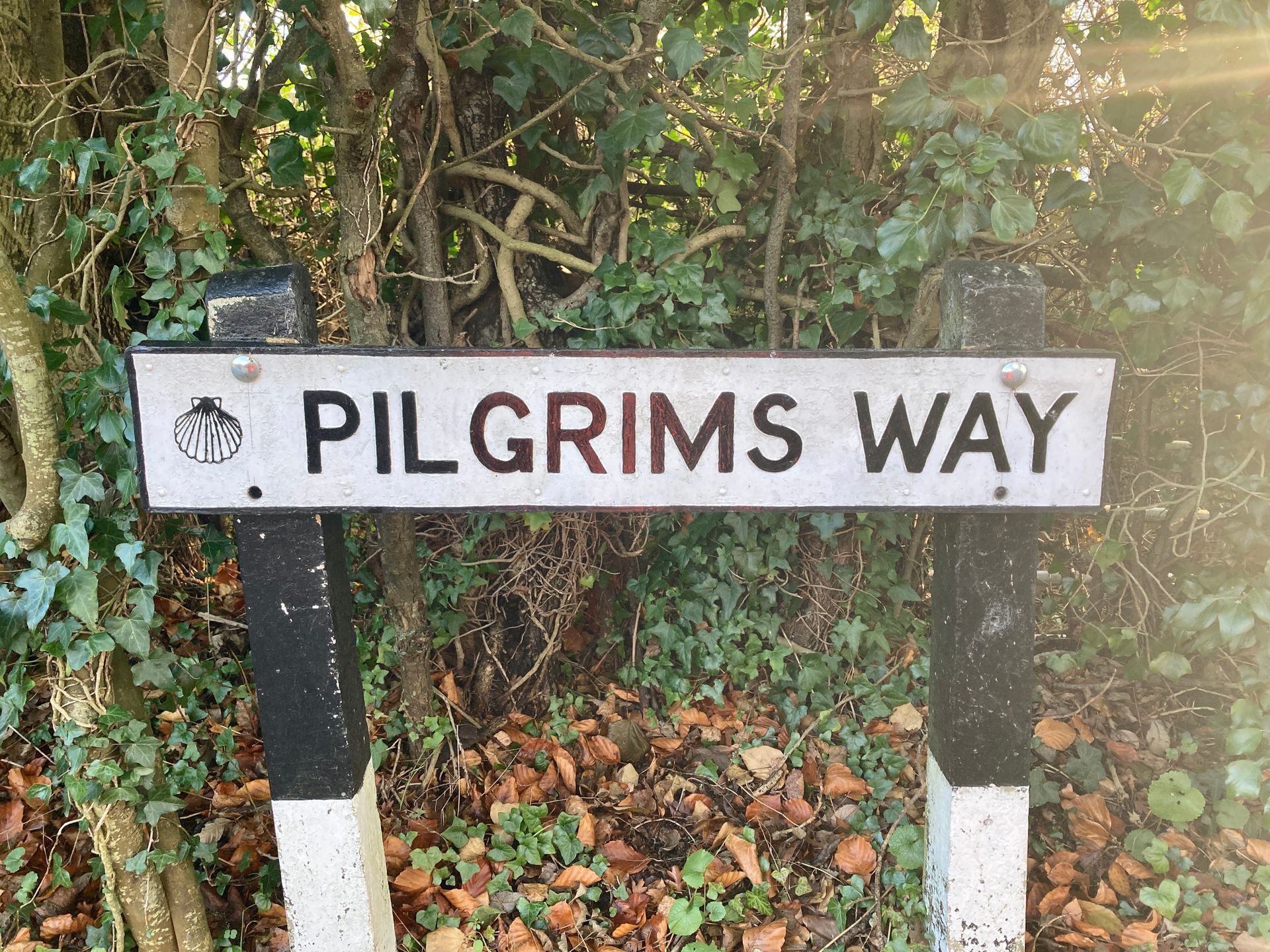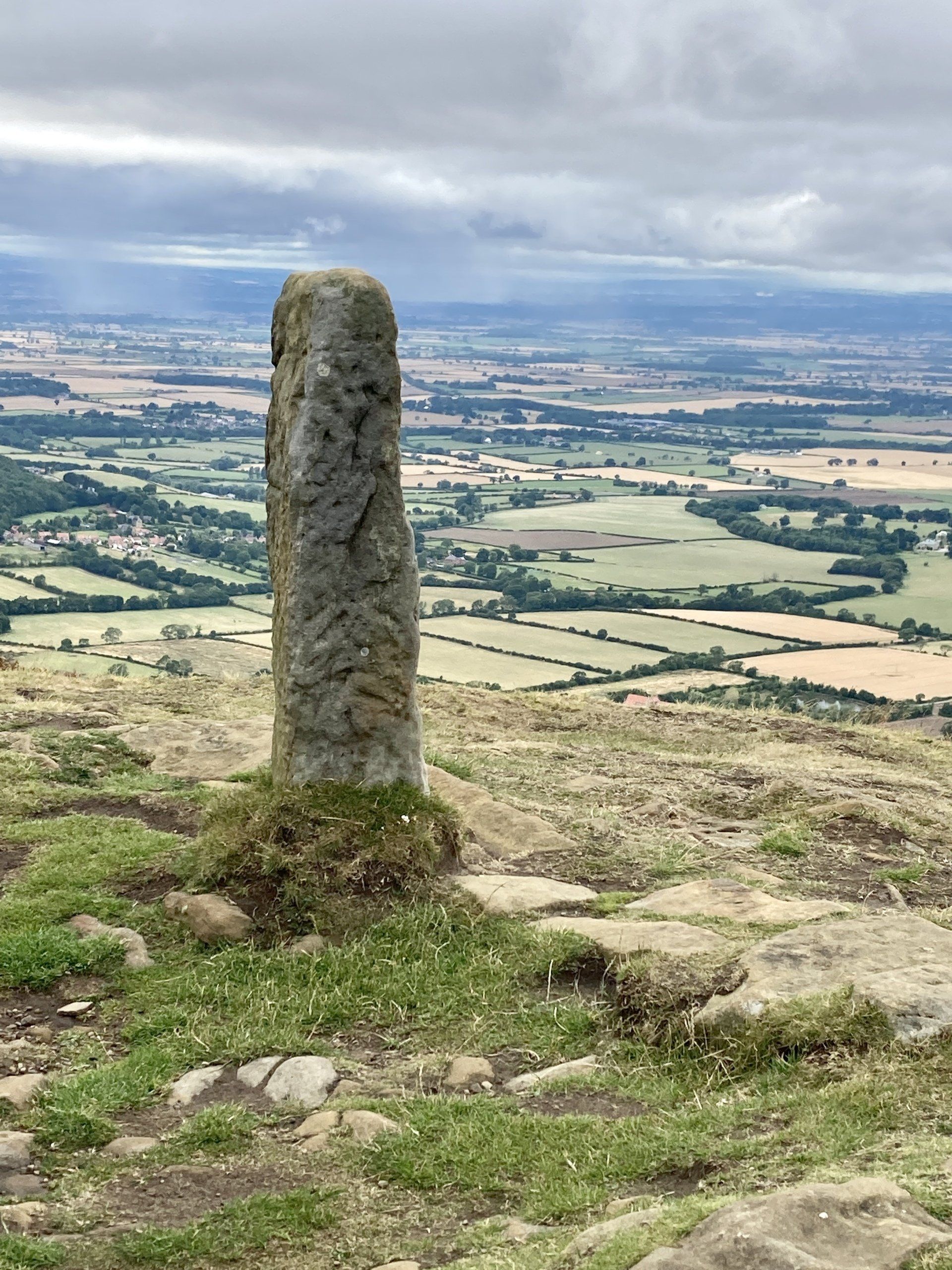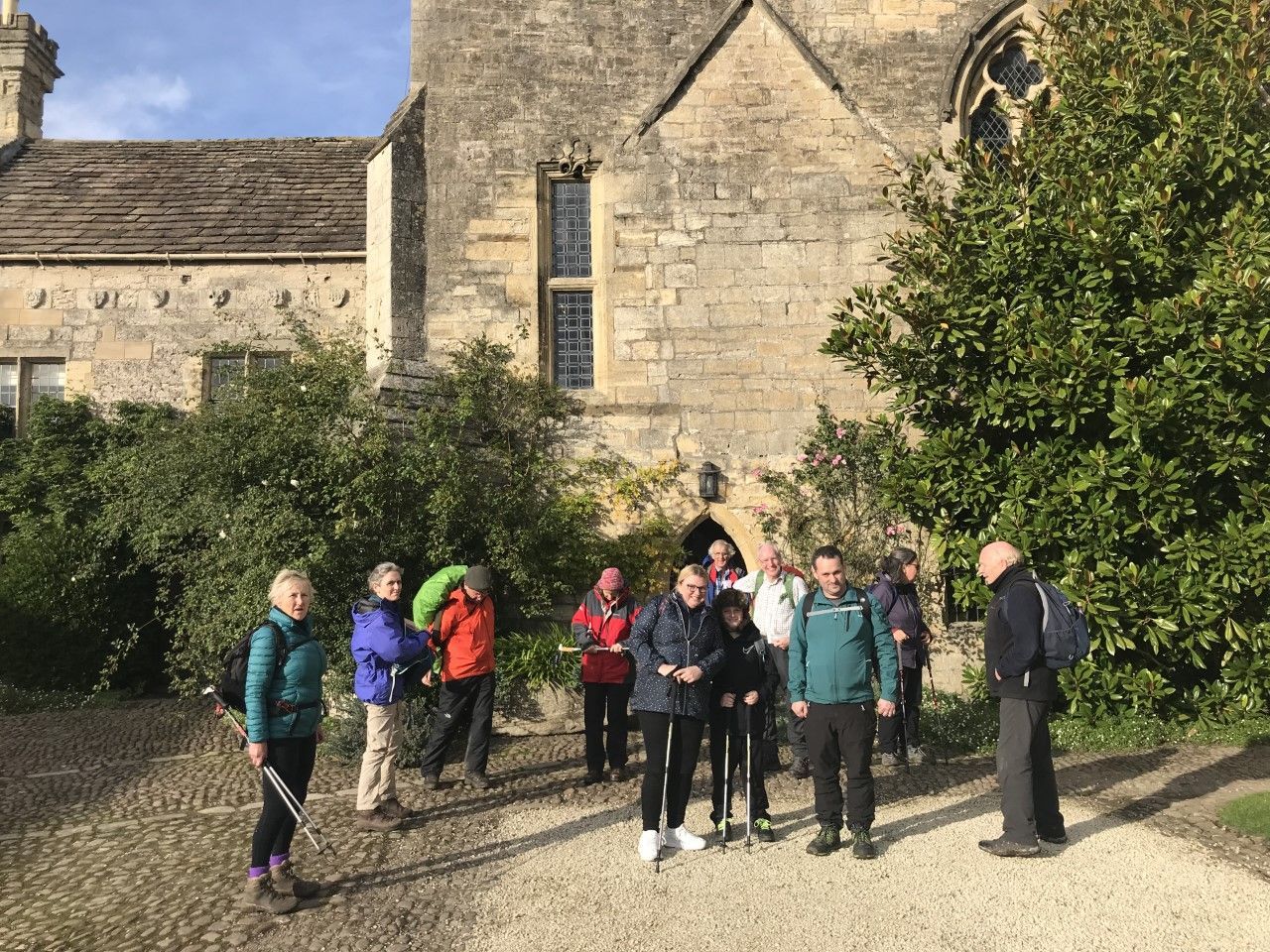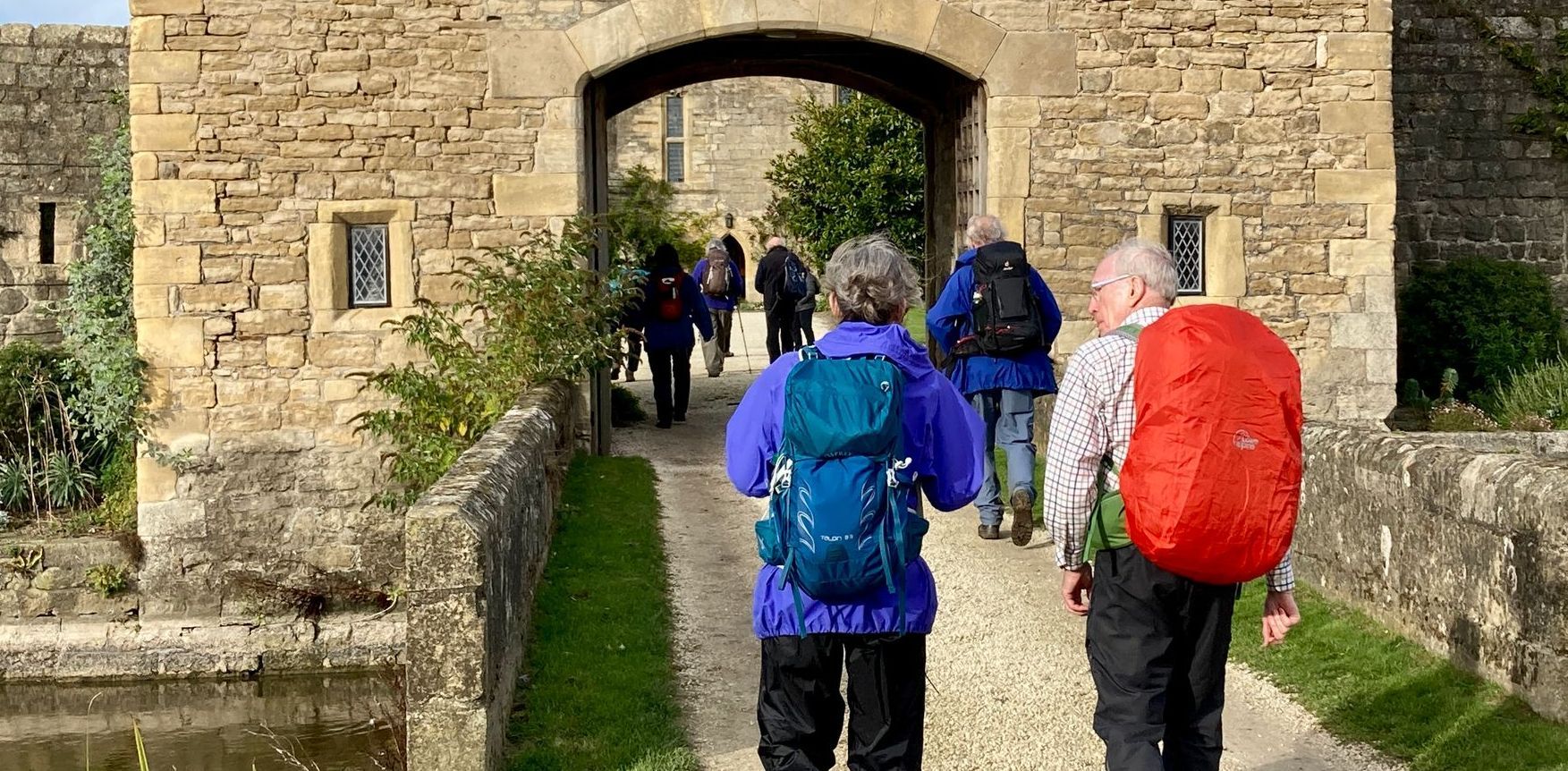A HOPEFUL SIGN
In this article, first published on the website of Together for the Common Good,
Hearts in Search of God Project Lead Phil McCarthy
explains how walking pilgrimage is a hopeful and countercultural sign

In 2008 I set off to walk from Canterbury to Rome alone. I was often asked “Is this a pilgrimage?” Unsure what pilgrimage means in our age, and reluctant to be pigeon-holed into piety, I obfuscated. Three months later I arrived in Rome and was delighted to be welcomed as a pilgrim in St Peter’s Basilica. I had been changed by the journey and wrote a book called ‘Rome Alone’ about the experience. Over the years since I have become convinced that walking pilgrimage is a countercultural sign pointing us towards the Common Good.
During my three month walk I became physically fitter, lost ten kilos in weight, dropped my blood pressure and improved my cholesterol. The personal benefits of long-distance walking are great and walking pilgrimage is increasingly seen as a contribution to developing small-scale sustainable tourism. In my view the most important impact of pilgrimage is its witness to a better way.

Over the last century, we have seen the growth of the power of both the state and the market, and the weakening and marginalisation of civil society, place-based communities, and families. There has been a rising tide of individualism and extreme social liberalism on one side, and a tsunami of technological change on the other, driven by the gales of a global economic market. Fear of drowning in waters which democratic governments seem unable to navigate has made some vulnerable to the lure of extremist politics of the right and the left.
Powerful commercial interests promoting a digital and virtual future combined with the progressive rejection of tradition are undermining our understanding of what it means to be a human person. At the same time the widespread loss of religious faith in the West has left many feeling bereft of hope, meaning and purpose in their lives, with serious consequences for the mental health of the population. Against this background walking pilgrimage offers a humble witness and a hopeful sign.

Anyone who reads ‘The Canterbury Tales’ will know that pilgrimage and tourism, trade and travel, and the sacred and profane have long been intertwined. Here I am contrasting ‘tourism’ and ‘pilgrimage’ not to argue that one is morally better than the other, but to highlight some of the characteristics of walking pilgrimage that challenge the forces which are corroding the Common Good.
Tourism in the West is a multibillion-pound industry bringing consumers and providers together often in impersonal and sometimes dehumanising ways. In contrast a walking pilgrim is marginal to, or even outside of, this transactional market. Where the tradition of pilgrimage is alive those who provide hospitality share in the journey, sometimes in deeply personal ways. I vividly remember a woman who ran a pilgrim hostel in Italy who insisted on washing and kissing the feet of her guests. This was a challenge to my English sensibilities, but there was no doubt of her welcome! Pilgrim accommodation can be basic and is sometimes gratuitous. In one parish, when I asked about donating in return for food and accommodation, the parish priest said:
‘Here is the pilgrim box. If you have money, you can put some in; if you have no money then don’t worry. But if you need money take some out.’
This open-handedness might be difficult to replicate in the UK, but the British Pilgrimage Trust’s Sanctuary Project encourages churches, village halls and other community facilities to provide low cost accommodation for pilgrims. As well as requiring no luxurious or high tec facilities, hiking is easy on the planet: it uses no fuel other than food.
The tourist industry often promotes an ‘exclusive experience’. In contrast staying in a pilgrim hostel is an inclusive experience; you have no idea who will be sleeping in the next bunk. Pilgrims tend to use public or shared transport to the start and finish of their pilgrimage, and walking uses public spaces with no entry fees or tickets. Whilst a tourist looks for authenticity in the absence of other tourists, for the pilgrim the presence of other pilgrims at the shrine or on the path confirms its authenticity. The American academic William T. Cavanaugh has written that for a tourist, crowds of others hollow the experience, but for a pilgrim, others hallow it.

A pilgrim is on a covenantal journey along a path that generations may have trod in the past, and she or he walks it in the hope that future generations will follow. There is a defined route and a clear destination: pilgrimage is not wandering at whim. Pilgrimage is a counter to the widespread worship of individualism which undermines the Common Good. The experience of pilgrimage is not of autonomy but of vulnerability to the elements and of dependence on the kindness of strangers. The slowness of a journey in direct contact with the earth is a humbling reminder that we are fragile and transient embodied beings. Walking pilgrimage challenges the shallow rootlessness of our hyper-mobile society because it is an act of remembering, re-enacting and re-living a deep tradition. Rather than novel forms of recreation a pilgrim seeks meaning through re-creation; following a particular ‘way’, which is not just a route, but an ancient religious and cultural practice.
Pilgrimage counters the fear of the stranger, the marginalisation and demonisation of the other. It often leads to encounters which enable deep conversations with those from radically different backgrounds and world views. Such personal interactions are building blocks of the Common Good and an antidote to the polarisation of our society and politics which is exacerbated by deracinated conflicts on (anti) social media.

William Cavanaugh points out that the Church is no longer at the centre of our culture but on the margins; in the West, where attendance and influence are in decline, and globally, because its centre of gravity is now in places on the periphery of world markets. He has written:
‘The church has been unmoored and should joyfully take leave of the settledness of the Constantinian social arrangements that gave it privilege and power. To accept our status as pilgrims on our way back to God is, as Augustine saw, to accept the provisional nature of human government. Our status as pilgrims makes clear that our primary identity is not what is defined for us by national borders.’[i]
Pilgrimage challenges nationalism because pilgrims are seeking the transcendent, an endeavour common to all humanity, if expressed in a multitude of ways, and often ignored in the West. Although pilgrimage asserts the spiritual unity of humanity it also contradicts a shallow cosmopolitan view that everywhere is interchangeable by asserting the significance of places. Pilgrimage is a journey to a sacred place, but by recognising the sacredness of a special place it also honours good everyday places; those many fine cities, thriving towns and homely villages. This is a challenge to the way that our built and natural environments are desecrated by ugly buildings, brutal rural developments or urban decay, pollution and, more mundanely, by vandalism, litter and graffiti.
Pope Francis has said of pilgrims:
“Whoever they may be — young or old, rich or poor, sick and troubled or curious tourists — let them find due welcome, because in every person there is a heart in search of God, at times without being fully aware of it.”[ii]
Today walking pilgrimage is a sign of hope and of true freedom. A pilgrim is not seeking to escape the world. Even without being fully aware of it, he or she is engaging profoundly with the world, responding to the call to become holy: wholly human, in communion with others, with creation and with the transcendent reality of God. Whether we walk long distances or not, we can all respond to that call as we make our journeys through our brief and often difficult lives.
References
[i] Cavanaugh, William T. Migrations of the Holy, p82, Wm. B. Eerdmans, Cambridge, 2011
[ii] Pope Francis, address to those engaged in pilgrimage work and rectors of shrines, 21.01.2016


